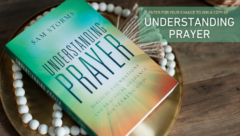Yesterday I broached the always-difficult subject of the Regulative Principle. As I should have expected, there was a good bit of discussion about it. I assume it was clear that I was not personally defending the Principle but merely attempting to explain it in a way that accurately represented those who hold to it. Today I will post a brief conclusion to the original thrust of the article which dealt with advent candles.
As you recall, yesterday I differentiated between elements and circumstances in worship. Elements are the “what” of worship and circumstances are the “how.” It seems to me that candles can fall into either grouping. If candles are used for lighting or atmosphere, as at a “Candles and Carols” Christmas Eve service, I believe they are circumstantial and can be left to the discretion of the church leadership. They are not being used as as an element of worship but are merely an alternative to light bulbs (which are also, of course, circumstantial). So there is nothing inherent in candles that make them unsuitable under the Regulative Principles.
However, if candles are to be used as an element within the service, as in the use of advent candles, I believe they fall under the purvey of the Regulative Principle. I will admit that I know little of advent traditions and have only once attended a church that used advent candles. I believe they followed church tradition in lighting a different candle for each of the four Sundays in advent. Each Sunday they would light the previous weeks’ candles and one new one. The final candle was lit on Christmas morning and each candle had a particular meaning and was meant to draw our thoughts to a different person or event. These candles were lit during the worship service and as an element of the service. Assuming this is typical, a church that holds to the Principle would have to reject these candles as being extra-biblical and thus unsuitable for corporate worship services.
So, to answer my friend’s question, yes, observance of advent and the lighting of advent candles violates the Regulative Principle.
I also mentioned yesterday that I would provide a very brief look at my beliefs about this Principle and its usefulness for churches today. I do so largely out of ignorance, never having felt the need to study this issue in great depth. I have been a member of churches that adhered to the Principle and a member of churches that did not. I consider it a secondary issue. Were I to become a pastor and to plant a new church I suppose I would have to formulate my thoughts to a greater extent. But to this point I have never had to reach a firm conclusion.
Having said that, I think it unlikely that I would adhere to the Regulative Principle. I do love the Principle for what it does well, and that is draw our attention to what the Bible mandates for corporate worship. The Principle is useful in drawing our attention to what God demands and what He rejects. I certainly agree that all of the elements modelled in Scripture should be present in our churches. But I do not find evidence stating that we must use only those elements.
Yesterday my pastor reminded me of an article on our church’s web site. Scroll down, if you wish, to the section titled “The Content of Corporate Worship: What Does the Lord Tell Us to Do in Worship?” He points out several of the shortcomings of the Regulative Principle with the predominant critique being the wide variety of application in the Principle. Every group seems to apply it differently, proving just how difficult it is to hold to it with any kind of consistency.
In short, I feel there is wisdom we can extrapolate from the Regulative Principle, but I am unconvinced that we must adhere to it. But do read this with the caveat I expressed earlier. This is not an issue over which I would be willing to take a firm stance.










